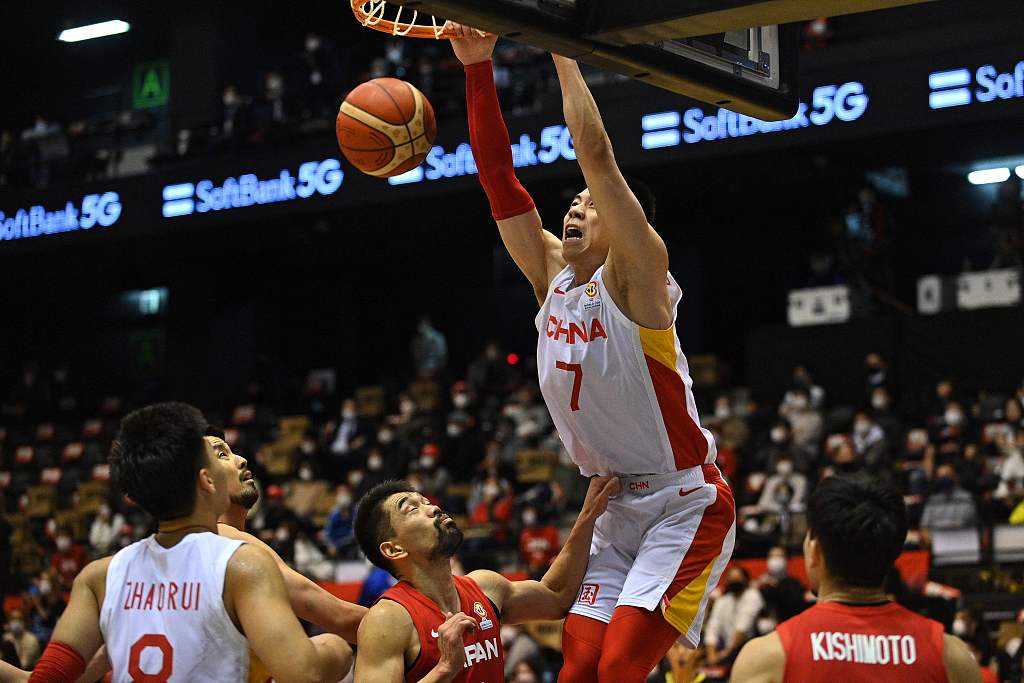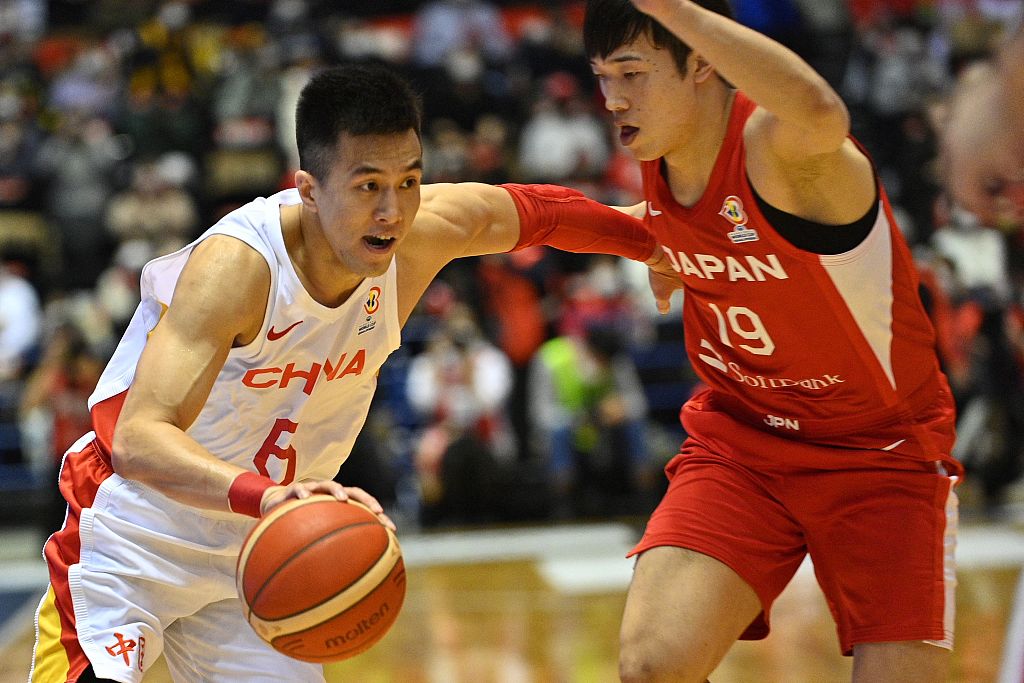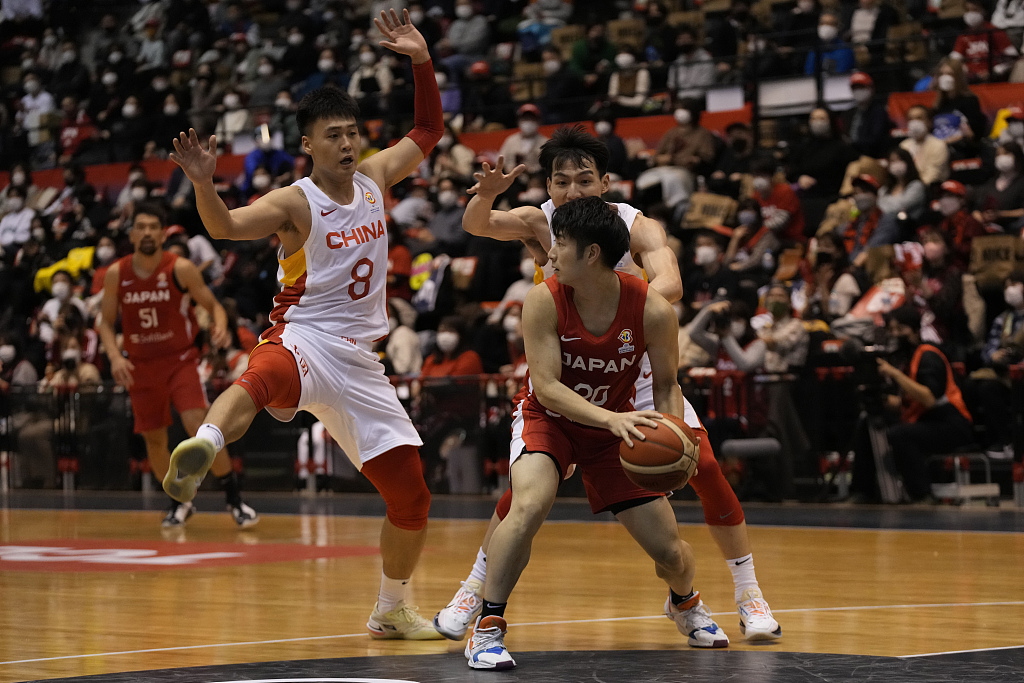
Zhang Zhenlin (#7) of China dunks in the 2023 FIBA Basketball World Cup Asian qualifier against Japan at Xebio Arena in Sendai, Miyagi Prefecture, Japan, November 28, 2021. /CFP
Zhang Zhenlin (#7) of China dunks in the 2023 FIBA Basketball World Cup Asian qualifier against Japan at Xebio Arena in Sendai, Miyagi Prefecture, Japan, November 28, 2021. /CFP
China beat Japan 106-73 in Sendai on Sunday in the second of two back-to-back 2023 FIBA Basketball World Cup Asian qualifiers between the two teams. On Saturday, China already defeated Japan 79-63.
China's head coach Du Feng replaced Zhou Qi, who sprained his right ankle in Saturday's game, with Wang Zhelin as the starting center.
Compared with Zhou, Wang was stronger and more destructive in the low post, which is why Japan did not hesitate to try double-teaming him when he received the ball. But China were well-prepared too: Wang was fully aware of how distracting his presence around the paint was to defenders and was very decisive looking for and passing to open teammates behind the arc. Moreover, his perimeter teammates kept exploiting his screens to charge Japan's rim.

Guo Ailun (#6) of China penetrates in the 2023 FIBA Basketball World Cup Asian qualifier against Japan at Xebio Arena, November 28, 2021. /CFP
Guo Ailun (#6) of China penetrates in the 2023 FIBA Basketball World Cup Asian qualifier against Japan at Xebio Arena, November 28, 2021. /CFP
Zhao Rui was China's best-performing player on Sunday night, draining six triples to get 27 points, four rebounds, five assists and four steals. Hu Jinqiu and Zheng Zhenlin contributed 12 and 17 points respectively. Guo Ailun put more focus on defense and fast break, putting down 14 points.
With Japan having automatically qualified for the 2023 World Cup as one of the tournament's three hosts, the qualifiers were more like drills than actual competitive events.
That partly explained why Japanese players kept trying to full-court press defensively. That gave China the opportunity to refine the skills of perimeter players.
It is no secret that playmaking has been one of the biggest headaches of the Chinese national team. Chinese point guards have often had problems moving the ball to the front court against ball-pressuring by strong opponents in top events like the World Cup or the Olympics.

Chinese defenders double-team Ryo Terashima (C) of Japan in the 2023 FIBA Basketball World Cup Asian qualifier at Xebio Arena, November 28, 2021. /CFP
Chinese defenders double-team Ryo Terashima (C) of Japan in the 2023 FIBA Basketball World Cup Asian qualifier at Xebio Arena, November 28, 2021. /CFP
Japan's defense on Sunday was not that tough but was aggressive enough, and Chinese fans will be glad their players dealt with this challenge well. The players could often find open teammates either at the 3-point line or in the paint with a quarterback pass without turning the ball over to Japanese defenders easily.
The Chinese players also managed to force turnovers out of their Japanese counterparts by suddenly conducting a trapping defense from time to time, creating more fast break opportunities for easy points.
One of the reasons behind China's failure at the 2019 World Cup at home was a lack of change offensively. With pace one of the integral parts of basketball today, the more the team can fit the modern trend, the more chances it will have of facing real tests in the future.

